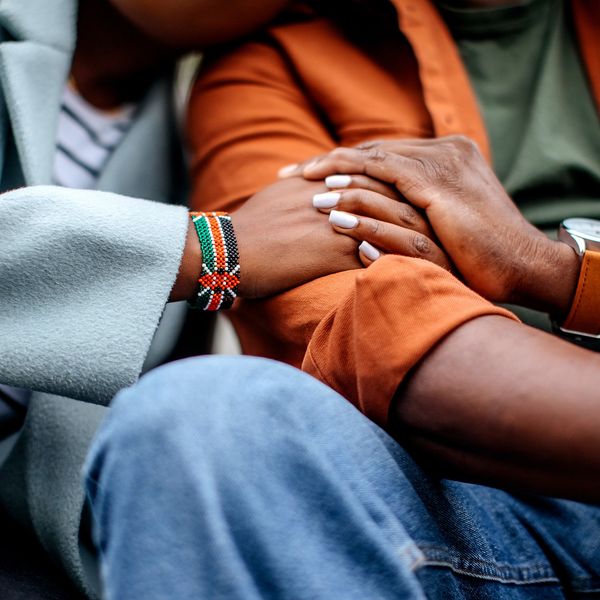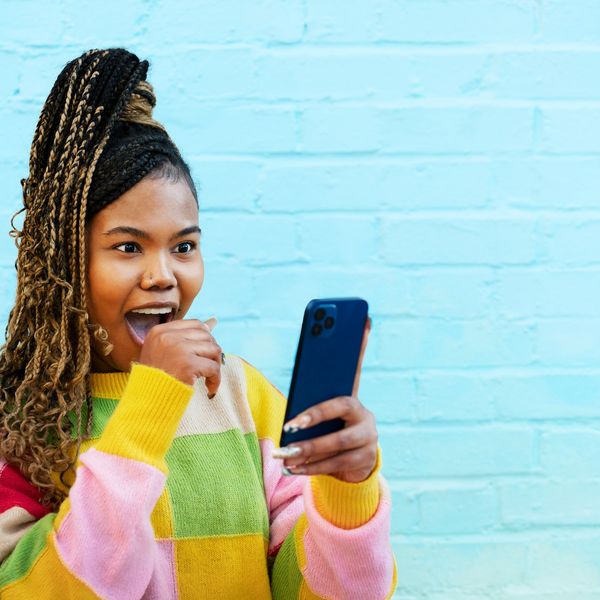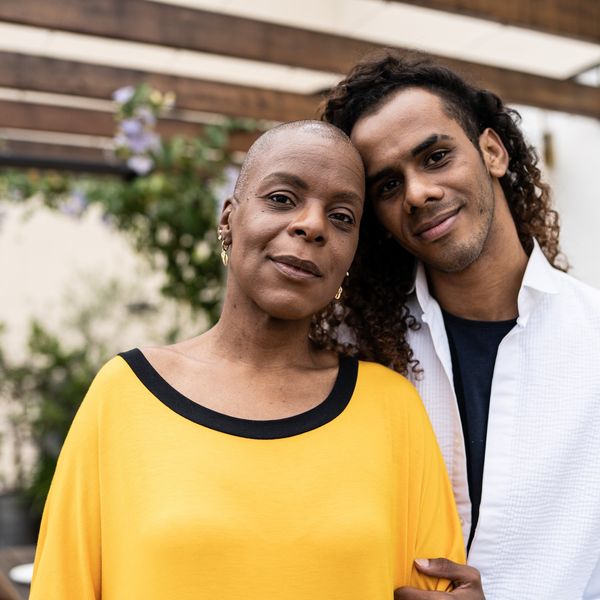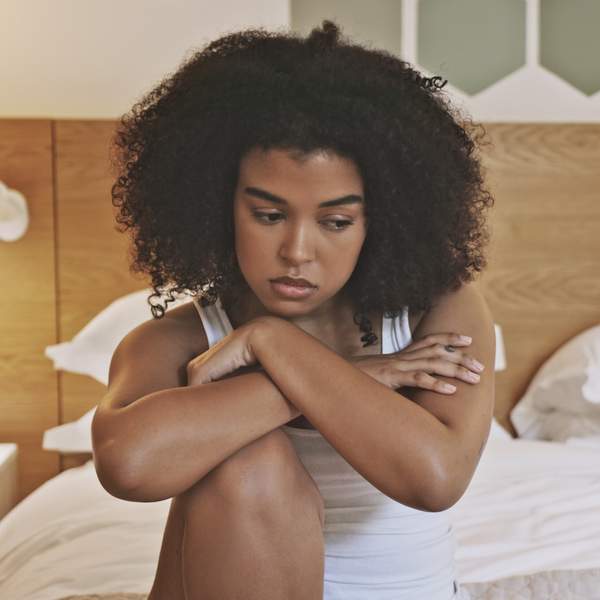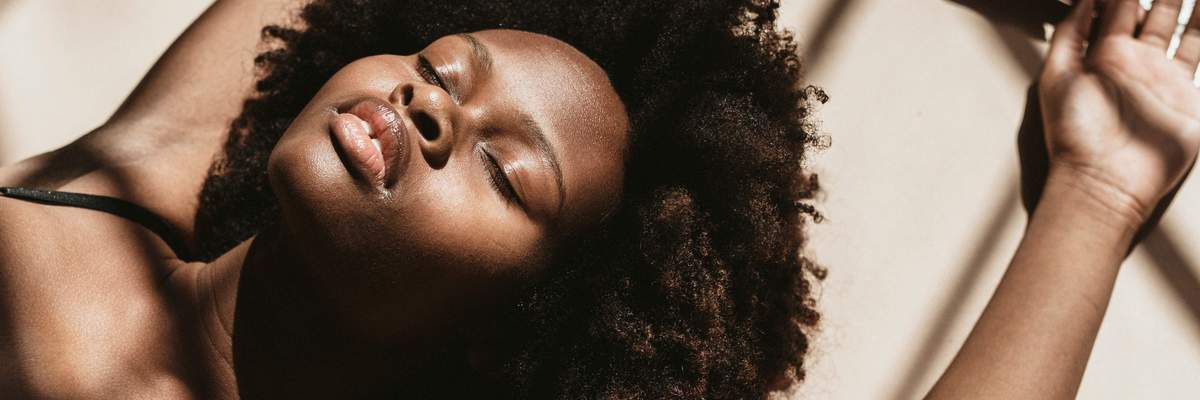Aight, so I’m thinking that a lot of you have played the game of Gossip at some point. If not, it’s when one person will come up with something to tell the individual who is sitting next to them, and then that person will repeat what was said to the individual who is next to them, and the cycle repeats itself until it gets back to the original person. The goal is for the first individual to hear back what they said verbatim.
Oftentimes, though, whether it was because people weren’t paying close attention or their objective was to jack the message up altogether, things don’t play out that way, and the first person gets back a message that sounds totally different than what came out of their mouth at the beginning.
Y’all, as you’re about to see in just a second, as “triggering” as it might be for some of you to hear (or read for yourselves once you revisit certain Scriptures in order to fact-check), a lot of what we’ve been taught about dating, courtship and marriage (a piece like this on marriage itself we’ll have to do at another time), as far as what the Bible actually says, has been like one long game of Gossip. Certain things have been altered, romanticized, or flat-out manipulated and then “rinse and repeated” for so long that folks state the alterations as (pardon the pun) gospel — when they shouldn’t be, especially if you want to apply Scripture, as it’s taught, to your own relational situations.
The last line in the Message Version of Luke 6:26 simply says, “Your task is to be true, not popular." And so, in spite of what the popular takes on dating may be in pulpits all over the world, let’s look into what it appears that the actual biblical truth is.
Could be quite a ride for some of y’all. Sit tight.
1. Relationship Can Come Before Purpose
 Giphy
GiphyAnyone who has heard me speak on the Bible before knows that my absolute favorite part of it is the Garden of Eden. It’s the only place where perfection is documented, and so, to me, that translates that we should still strive to live our life the way that it’s mentioned in the first two chapters of the Good Book. And when it comes to dating, if you pay very close attention, although both men and women were made in the image of the Godhead (Genesis 1:26-28), Adam came first (Genesis 2:7) — and if you read the story, just as it was told, Adam had a relationship with God and a purpose assigned by God BEFORE the Woman (Eve’s name prior to sin — Genesis 3:20) came into the picture.
This is why I don’t get all of the pressure that folks in college (for example) put on themselves when it comes to serious relationships and marriage. The time when many folks are hyper-focused on figuring out what their purpose is is when they are completing their formal education, and since a big part of “finding the one” is figuring out who complements your purpose most and best, purpose should come above all else. Know what else? You shouldn’t choose someone who tries to get you to abandon your purpose since your purpose is literally the reason why you’re here, to begin with (because that is exactly what “purpose” means).
So yeah, if you want to date the biblical way, a man who is aligned with his Creator and also knows his purpose in life should be the top things on your agenda. If those things are lacking, prepare yourself to automatically do some…struggling. Unnecessarily so. That said, if a man is consumed with getting right with God and knowing what his purpose is, don’t be, as the church mothers put it, a “stumbling block,” move out of the way. Make sure you and your own Creator are aligned and that you are walking in your purpose, too. Do that and I promise that your plate will be plenty full.
2. Men Are Hunters
 Giphy
GiphyI actually think I’ve touched on this one before; however, because it irks me to no end to hear folks say that “men are hunters” when it comes to dating, let me just say that ADAM WAS A GARDENER, NOT A HUNTER — and yes, I am yelling it! What in a woman says she wants to see herself as some man’s prey when it comes to relationships? Nothing. Instead, it makes a lot more sense that Adam, in the state of perfection, was a gardener because gardeners cultivate things, and cultivate means “to refine,” “to promote the growth or improvement of,” “to seek the friendship of” and “to devote oneself to.” When it comes to what a husband should do for a wife, doesn’t that make a whole lot more sense?
Besides, some biblical hunters who immediately come to my mind are Cain (who killed his brother — Genesis 4) and Esau (who was jealous of his brother — Genesis 25), and what about them, as husbands, sounds especially comforting? Besides, one more time: if a man hunted you, he can make having you in his life be all about him.
However, if he allows God to BRING YOU TO HIM (like God did for Adam in Genesis 2:22), then he has no choice but to see you as a gift from the Most High (remember, “Every good gift and every perfect gift is from above…” — James 1:17[NKJV]) which humbles him enough to treat you as a manifestation of God’s love instead of something that he acquired on his own.
Yeah, y’all can keep those hunting men. For me, I want a gardener. Full stop.
3. You Should Pray for Your Own “Boaz”
 Giphy
GiphyIf there is one thing that really gets on my nerves, it’s when people treat God like he’s Santa Claus or act like there is a formulaic prayer they can say that will suddenly make Him do whatever they want. An example of this that immediately comes to mind is when Ciara married Russel Wilson; it seemed like, for a year straight, all we heard as women wanting to know what she prayed in order to bring him into her life. C’mon people, God does not work that way. As it says in Psalm 33:15(NKJV), “He fashions their hearts individually; He considers all their works.” This means that each person has their own customized life walk and love story — this includes Ciara and a biblical character who gets treated a lot like Ciara: Ruth.
“I’m just waiting on my Boaz.” Why? Boaz is a man from thousands of years ago and somebody else’s husband. Not only that, but by the way, a lot of y’all talk about how you want to be dated/courted; you don’t want Ruth’s story anyway. Read the Book of Ruth just as it was written. With Naomi’s instruction (Ruth 3), Ruth made the first move. Ruth pursued that man (similar to how Esther pursued King Xerses). And if folks would get Disney out of their minds, it wasn’t exactly the love story that gets told. Remember that Ruth was a Moabite (Ruth 1:4) and Boaz was Hebrew.
When she went to see him in the middle of the night (by the way, one of my favorite books says that the actual Hebrew translation says that she went to his thighs, not his feet — check out The Gospel of Ruth: Loving God Enough to Break the Rules) and he made it his mission to find the closest relative who was eligible to marry her, a part of the motive was to protect her. Back then, a Moabite (because marrying Boaz “redeemed her” more than merely following Naomi back to her hometown — Ruth 1:16-17) coming onto a Hebrew warranted stoning; he was protecting her more than it was some beautiful love affair.
One more thing: according to the Midrash (which is a highly respected Jewish commentary on divine Scripture; remember, the first language of the Bible is Hebrew), Boaz actually died on his and Ruth’s wedding night sometime after their marriage was consummated (clearly because she later birthed Obed, their son — Ruth 4:17).
Okay, so some of y’all are out here saying that you want a much older man, who you have to work pretty hard to get his attention, who you then have to take great risks to pursue, who you then have to wait while he sees if another man wants to marry you before he proposes, and who then dies before you can go on your honeymoon, leaving you to raise a baby with the help of your mother-in-law from your other husband who died as well. Do you really?
Church folks are good for saying that death and life are in the power of the tongue (Proverbs 18:21) and then will say, repeatedly, things that are common without really pondering and processing if they know the weight of what comes with it. No woman needs to wait on “her Boaz.” Trust God to lead you into your own love story — however, that turns out.
4. Finding (Automatically) Means Pursuing
 Giphy
GiphyFor all of you consistent churchgoers, when it comes to dating and courtship, what would you consider to be the anchor verse that is used the most often? If you said, “He who finds a wife finds a good thing, and obtains favor from the Lord” (Proverbs 18:22 — NKJV), I think that I would have to agree with you. Yet, it always tickles me how much focus is put on the word “find” more than “wife” (there sure is a lot of talk about what men need to bring to the table when if you need to be a wife before marriage, there are some serious qualities that you need to bring to the table too, sis — check out “Do You Want To Be A Wife? Or Do You Just Want To Have A Wedding?”).
Find. I already mentioned that in the state of perfection, Adam was asleep (unconscious) when God made the Woman and then BROUGHT HER to Adam. Brought is the past tense of bring and bring means “to cause to occur or exist; to cause to come into a particular position, state, or effect; to cause to come to or toward oneself; attract." If God brought the Woman, there was no “finding” to be done. Not only that, but "find" means a whole lot of things — not just “pursue.”
Find: to come upon by chance; meet with; to locate, attain, or obtain by search or effort [which is basically to pursue]; to locate or recover (something lost or misplaced); to discover or perceive after consideration; to gain or regain the use of; to ascertain by study or calculation; to feel or perceive; to become aware of, or discover (oneself), as being in a condition or location
Do you see all of those definitions? Like I say often, I can be looking for a missing tube of lip gloss and find five dollars. I didn’t pursue the “five;” I discovered it. So yeah, everyone who puts extra emphasis on “find” whenever they quote Proverbs 18:22 could stand to open up a dictionary and see that it’s a very vast word. The biggest takeaway here is to allow your steps to be ordered (Proverbs 37:23) and to be wife quality so that whether you meet your husband by chance (find), he pursues you (find), you regain each other (after some time has passed which also means “find”) — whatever the case may be, you’re ready.
5. Women Are the Prize (Uh-Oh)
 Giphy
GiphyIf there is one relationship-based debate that I really wish would wind itself up — quick, fast, and in a super-duper hurry, it’s if the man or woman is the prize (insert all sorts of eye rolls here). For one thing, prize literally means “anything striven for, worth striving for, or much valued” and value means “relative worth, merit, or importance.” That said, why in the world should anyone want to be in a relationship with someone who doesn’t see them as something of great value or wouldn’t want to treat their partner as something of great value? What kind of sense does that make?
Besides, even though Scripture says that a helpmate (which is what women were created for men to be — Genesis 2:18) is a lifesaver for a man (because the Hebrew word for helpmate is ezer kenegdo) and that is pretty amazing, a husband ain’t no slouch either. In fact, check it:
“When they observe the pure and modest way in which you conduct yourselves, together with your reverence [for your husband; you are to feel for him all that reverence includes: to respect, defer to, revere him—to honor, esteem, appreciate, prize, and, in the human sense, to adore him, that is, to admire, praise, be devoted to, deeply love, and enjoy your husband].” (I Peter 3:2 — AMPC)
According to Scripture, the man who vows to the Lord (Ecclesiastes 5:1-7) to be your provider and protector for the rest of your life, he should be highly respected (Ephesians 5:33) and seen as a PRIZE. I really don’t get what else needs to be said about this one — so I’ll just move right along.
6. God Will Give You Whatever You Desire
 Giphy
GiphySomething else that church folks like to do: edit Scripture. Don’t believe me? What part of this verse do you tend to hear the most?
“Delight yourself also in the Lord, and He shall give you the desires of your heart.” — Psalm 37:4 (NKJV)
C’mon — we all know that it’s the part that comes after the comma that folks literally beat to death. And in the context of this article, many women will proudly and boldly be on some, if I want a (pardon correlation here) “6-6-6 man” (check out “Okay, So Here's What You Need To Know About the '6-6-6' Man”), surely God will bring him to me because it’s what my heart desires.
Yeah…NAW. Again, if we’re doing strictly Scripture here, no believer should be out here professing that they follow their heart because Jeremiah 17:9-10 says that the heart is deceitful. Makes sense, too, because a definition of "heart" is “center of emotions,” and feelings can be quite fickle, which means that you can want one thing one day and something else the next, and God? He’s not erratic and unstable like that. Plus, Psalm 37 says that delighting in the Lord is what should come before your desires, and doing that consists of finding joy and pleasure in Him so that — please catch this part — His wants for you become your wants as well because that’s how much you trust Him.
Not to mention the fact that James 4:2-3(NKJV) says, “Yet you do not have because you do not ask. You ask and do not receive, because you ask amiss, that you may spend it on your pleasures.” "Amiss" means “out of the right or proper course, order, or condition; improperly; wrongly; astray,” so no, you don’t get whatever (or whomever) you want “just because.” If what you desire is out of order or it’s going to lead you astray, according to Scripture, merely asking (or automatically expecting) is not what will cause God to grant it to you — because it goes against his will for you.
Yeah…I said that this was gonna hurt a bit. It’s Scriptural, though — and the truth shall set you free (John 8:31-32). Let me close out with one more.
BONUS: There Are No Boyfriends and Girlfriends in the Bible
Know why I can’t find a Scripture for what she said? It’s because there are no boyfriend/girlfriend dynamics in the Bible. NOT. A. ONE. You’re single (check out “10 Words That'll Make You Totally Rethink The Word 'Single'”), betrothed (engaged), married, divorced (and that’s rare in the Bible), or widowed. That’s it (the same goes with filing taxes; there’s no “dating” box to check).
And that’s why I say often that the way our culture dates teaches people how to divorce, NOT marry because giving your all to multiple people only for it to not work out tends to either numb or jade you to the point that when you do actually get married, you don’t see relationship as much more than a dating dynamic and so you treat divorce like it’s nothing more than a break-up — even though Scripture absolutely does not look at it through that casual type of lens (Malachi 2:16, Matthew 19:1-12, I Corinthians 7:10-11).
So, how do I think folks go from single to engaged and then married? I know people who were friends, close friends, who were also low-key attracted to one another. When both were ready for marriage, they had conversations about what merging lives would look like. They got engaged, and then they jumped the broom. Relatively smooth transitions with no drama and a big part of it is because they BOTH were ready for marriage, and their lives complemented one another. Bottom line, acting married when you’re not “programs” you to not treat marriage as sacred and special (which may be while your chances for divorce increase if you live together prior to saying “I do” — and that’s just how it’s designed to be seen.
____
This was a lot. Believe me, I know. And I definitely encourage you to do some deep diving on the points that may have made you “feel some type of way.” Really, if I had a bottom line for all of this — study the Bible for yourself, look deeper into the Scriptures that you think you already know, and don’t apply a one-size-fits-all to love stories.
God is bigger than that. The Bible is bigger than that. Your love story is bigger than that.
Let the Church say…AMEN.
Let’s make things inbox official! Sign up for the xoNecole newsletter for daily love, wellness, career, and exclusive content delivered straight to your inbox.
Featured image by Leo Patrizi/Getty Images




